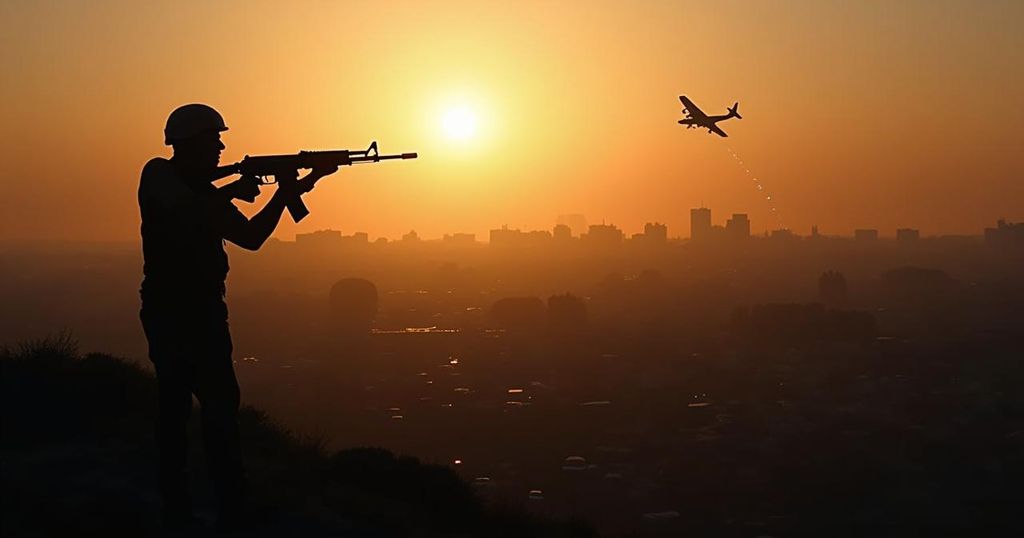Escalating Israeli Air Strikes Impact Lebanon and the West Bank
Recent Israeli air strikes have targeted southern suburbs of Beirut and the Tulkarem refugee camp in the West Bank, leading to significant casualties and property damage. The military operations are part of an ongoing effort to eliminate key members of Hezbollah and Hamas, with tensions in the region remaining high amid calls for accountability regarding civilian safety and adherence to international humanitarian law.
In a significant escalation of military actions, Israeli air strikes targeted the southern suburbs of Beirut, Lebanon, resulting in extensive damage to residential buildings. Reports indicate that these recent operations represent the most substantial level of aggression yet observed in the region. Concurrently, Israeli fighter jets executed a severe strike on the Tulkarem refugee camp in the occupied West Bank, claiming the lives of at least 18 individuals and marking it as the deadliest aerial assault in that area for over two decades. The Israeli military aimed to eliminate Hashem Safieddine, a figure closely linked to Hezbollah and viewed as a potential successor to the group’s deceased leader, Hassan Nasrallah. Sources from Axios, relying on statements from three anonymous Israeli officials, suggest that Safieddine was concealed in an underground bunker during the attack, although his fate remains uncertain. The US State Department has classified Safieddine as a Specially Designated Global Terrorist since 2017 due to his leadership role within Hezbollah’s executive council. Meanwhile, the Israeli forces also announced the death of Zahi Yaser Abd al-Razeq Oufi, an alleged leader of Hamas, as a result of the assault in Tulkarem. Rawhi Fattouh, spokesperson for the Palestine Liberation Organisation, condemned the Israeli air strikes, asserting that such violent actions will not contribute to security or stability in the region. He characterized the attacks as a “bloody, criminal aggression,” further denouncing the killing of civilians as a blatant violation of international humanitarian law. As tensions escalate across the Middle East, Al Jazeera continues to provide live updates on the ongoing conflicts in Gaza, Lebanon, and the implications of rising hostilities with Iran.
The region has witnessed increasing military confrontations, particularly between Israeli forces and Palestinian groups, alongside Hezbollah’s involvement. The recent Israeli air strikes in Lebanon and the West Bank are emblematic of ongoing hostilities that have resulted in significant civilian casualties. The targeting of key militant figures like Hashem Safieddine reflects Israel’s broader strategy of dismantling leadership within groups it designates as terrorist organizations. The repercussions of these strikes not only impact immediate security dynamics but also contribute to broader geopolitical tensions in the region, with potential ramifications for international relations, especially concerning US involvement and support.
The recent escalatory measures taken by Israel, including air strikes in Beirut and Tulkarem, have resulted in numerous civilian casualties and further entrench the cycle of violence in the Middle East. The targeting of influential figures within Hezbollah and Hamas highlights Israel’s strategic military objectives, while the global community grapples with the humanitarian implications of these actions. As the situation continues to develop, the calls for accountability and adherence to international law become increasingly urgent.
Original Source: www.aljazeera.com




Post Comment